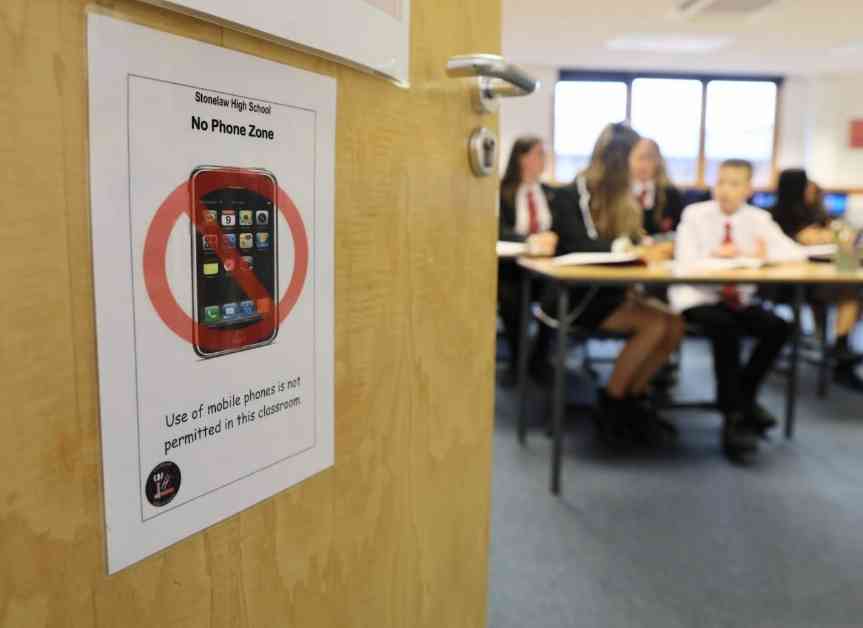Pupils at Stonelaw High School in Rutherglen have recently found themselves at the center of a new policy regarding the use of mobile phones in the classroom. The Scottish Government’s new guidance grants headteachers the authority to ban devices within school premises, sparking a debate among students about the impact and implications of such a decision.
Student Perspectives on the Cell Phone Ban
Upon visiting Stonelaw High School to gather student opinions on the ban, it became evident that many pupils were supportive of the new policy. Alfie Beacham, a 14-year-old student, expressed his approval, stating, “I think it is a good policy because we looked at our screen time recently and for myself I found it shocking. Sometimes I can be on my phone for seven hours, and I don’t want that.” This sentiment was echoed by Sukhmani Bhatia, another 14-year-old student, who admitted to being surprised by her daily screen time of five hours and believed that the ban would help reduce it.
Naima Goswami, a 13-year-old student, commended the school for offering a compromise by allowing phones during breaks and lunches, acknowledging the importance of communication, especially during the COVID-19 pandemic. Eilidh Connor, a 15-year-old student, shared her concerns about a complete ban on phones, emphasizing the need for communication with parents in case of emergencies. India Tomes, also 15, emphasized the significance of finding a middle ground that considers both student preferences and academic priorities.
Educational Impact of Mobile Phone Use
Jennifer M. Gilruth, the Cabinet Secretary for Education and Skills, highlighted the detrimental effects of excessive mobile phone use on student learning and behavior. She emphasized the importance of maintaining consistent and safe learning environments to support teachers in their roles. Gilruth noted that post-pandemic mobile phone use in schools has negatively impacted students’ attention span and overall academic performance.
Vicki Rice, Acting Headteacher at Stonelaw High School, welcomed the new guidance and emphasized the importance of engaging both staff and students in discussions about the policy. Rice highlighted the value of incorporating personal and social education into the curriculum to address the challenges posed by mobile phone use in schools.
Challenges and Solutions
The debate around mobile phone bans in schools raises important questions about balancing technology use with academic engagement. While some students support the ban as a means of reducing screen time and distractions, others express concerns about losing access to communication tools and familiar modes of interaction. Finding a middle ground that addresses these concerns while promoting a conducive learning environment is essential for schools and policymakers.
The implementation of the new policy at Stonelaw High School reflects a proactive approach to addressing the challenges posed by excessive mobile phone use among students. By allowing phones during designated times and providing clear guidelines for their use, the school aims to strike a balance between technology integration and academic focus. This approach acknowledges the dual role of mobile phones as both communication devices and potential distractions in the classroom.
The impact of the cell phone ban on student behavior and academic performance remains to be seen. Monitoring the implementation of the policy and gathering feedback from students and teachers will be crucial in evaluating its effectiveness. By fostering open communication and collaboration among all stakeholders, schools can create a supportive and conducive learning environment that addresses the complexities of technology use in education.
In conclusion, the student response to the cell phone ban at Stonelaw High School underscores the importance of balancing technology use with academic priorities. By engaging students in discussions about the policy and considering their perspectives, schools can promote responsible device use while maintaining a focus on learning and personal development. As the educational landscape continues to evolve, finding innovative solutions to the challenges posed by technology in the classroom will be essential in preparing students for success in the digital age.















